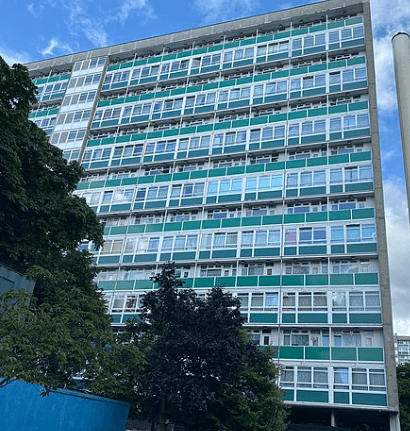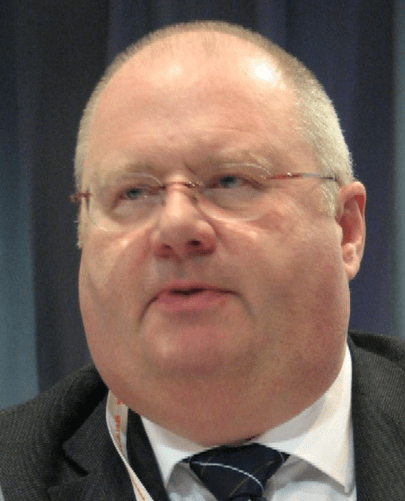By John Pickard, Brentwood and Ongar Labour member
The obnoxious Tory peer, Lord Pickles, one-time minister responsible for Communities and Local Government, showed his utter contempt for the Grenfell Tower Inquiry when he deigned to attend last week. Clearly narked at having to give up his precious time to answer questions, he even mixed up the death toll in the Grenfell fire with the number killed at Hillsborough.
He angered families of the Grenfell victims by his superior attitude to the inquiry, telling the senior counsel, “use your time wisely” because he, Lord Pickles, “had an extremely busy day”. He reminded the QC, “that you did promise that we would be away this morning and I have changed my schedules to fit this in.” (Guardian, April 8)
Pickles, once a mere MP (Brentwood and Ongar), was the actual minister responsible for local authority housing from 2010 to 2015, and he was specifically asked about an earlier fire, at Lakanal House, in Lambeth, in which six people had been killed. An inquiry into this fire had ended in March 2013, with recommendations to prevent such fires in the future, being sent to the minister responsible – who would have been Pickles.
Asked about the Lakanal report, and whether or not his department had learned any lessons from it, the noble lord haughtily shrugged it off, telling the Inquiry that any quicker response from government would not “have made any difference whatsoever”.
Only five days of questioning scheduled for politicians
“This isn’t about deregulation,” he told those present, but about the “nameless victims” and “96 people” who had been killed. Clearly Pickles hadn’t even bothered to do his homework: there were 72 killed in the Grenfell fire, and 96 at Hillsborough (although that was later amended to 97) and none of them were “nameless”.

In fact, Pickles, and the entire government of which he was part, had a gung-ho attitude to all ‘red-tape’ and regulations at that time and his contemptuous dismissal of the Lakanal House report was a poor attempt to cover that up. The Grenfell Inquiry’s chief counsel, Richard Millett QC, was spot on when he told Pickles, “You were spectacularly out of touch with what was happening in your department.”
“Your department was always subject to the deregulatory agenda and you are now seeking to recast that narrative”, Millet added, “and to underplay what was in truth an enthusiasm by your government for a deregulatory agenda, which led to a complete absence of proper checks and balances so far as concerns life safety.”
At the end of the hearing, the inquiry chairman thanked Pickles for his time, saying: “I am sorry that it interfered with your arrangements for today, but there were things that we needed to ask you.” It was not clear from press reports, whether or not this was sarcasm, but it certainly ought to have been.
Speaking to the Guardian (April 8) later, spokespersons for the Grenfell survivors’ group expressed their outrage at Pickles. “His utter disregard for what happened and to those no longer with us”, they said, “is horrifying, given that he had the ability as minister of housing to reform building safety”
It is no surprise, given the disgraceful “testimony” of Lord Pickles that the Fire Brigade Union had earlier complained about the published Inquiry schedule and the fact that politicians would receive just five days of questioning in total.
The inquiry, unwittingly or not, is protecting those who have responsibility
“The time given to evidence from witnesses such as civil servants, firefighters and control staff relative to national politicians”, an FBU press statement said, “shows that the inquiry is – unwittingly or not – helping to protect politicians, whom the union believes have responsibility for the disaster”.
The inquiry spent weeks questioning individual firefighters and control staff. It gave extensive time for questioning figures such as civil servants, with one civil servant, Brian Martin, recently subjected to questioning for nearly eight days. Yet here was Lord Pickles, the government minister responsible for inactivity after the Lakanal House fire, complaining about a couple of hours.
Matt Wrack, general secretary of the Fire Brigades Union, said, “The lack of focus on ministers raises serious questions about the inquiry’s commitment to justice for the victims of Grenfell, and is what the FBU has feared all along.

“Individual firefighters and control staff did not put cladding on Grenfell Tower: politicians created the regulatory system that allowed it. Yet it is firefighters and control staff who have been dragged before the inquiry for weeks of evidence, with politicians getting only a single week altogether.
“FBU members were asked to deal with a situation that no one had prepared for, that no one expected and that they did not create. They are not to blame for this disaster. Politicians should be held to account for their actions which could have prevented this fire.”
Matt Wrack also highlighted the fact that ministers have so far been questioned without reference to hand-written notes that would help reveal their views on key documents, because they appear to have gone missing. “We cannot continue with a situation where the inquiry is seeing an incomplete picture”, he said, “including with regards to vital records that would reveal politicians’ motivations and decisions. The inquiry must be far more active in seeking these documents and politicians must do everything they can to provide them.”
The FBU also highlighted the role of Brandon Lewis MP in damaging the fire and rescue service in the years preceding the Grenfell fire as he appears before the inquiry. Lewis was minister with responsibility for fire between 2012 and 2014, and again from 2016 to 2017. He gave evidence to the Grenfell Inquiry on March 30.
In a press statement, before Lewis was to give evidence, Matt Wrack, said: “I watched for years as Brandon Lewis took an axe to the fire and rescue service”, Matt Wrack said. “Our union warned of the destruction he was risking, yet we were ignored time and time again. He purposefully and persistently dismantled the fire and rescue service, through cuts and a privatisation agenda. In just five years between 2012 and 2017, 20% of firefighting posts were cut across England – that’s one in five firefighters. In London, 10 fire stations closed in 2014. Those cuts have had disastrous consequences across the country, and directly relate to the worst loss of life in a fire since the war.”
Lewis adviser suggested saving money on fire-crews
“In 2013, Lewis commissioned an efficiencies review of the fire and rescue service in England by former chief fire and rescue adviser Ken Knight, which recommended saving money through a variety of untested suggestions such as substituting retained (part-time or on-call) firefighters for wholetime crews and was seen by the FBU as “a fig leaf for further cuts to the fire and rescue service”.
“He was also responsible for failing to resolve serious fire safety issues. Prevention and enforcement were weakened, fire safety officers were cut by 25% between 2011 and 2017, and the number of fire safety audits falling by around a third between 2012/13 and 2016/17.
“Lewis appears to have supported privatisation in relation to the fire and rescue service, with a 2013 Mirror story stating the newspaper had obtained a letter by Lewis to the Regulatory Reform committee, in which he called for new laws that “would enable fire and rescue authorities in England to contract out their full range of services to a suitable provider”. He also oversaw the sale of the Fire Service College to Capita and indicated support for the attempted mutualisation of Cleveland Fire Brigade, saying Cleveland Fire Authority “wants” mutualisation.
“He made statements which were supportive of deregulation in relation to the fire sector, for example telling the 2012 CFOA conference that “I firmly believe that businesses have the right to expect that those enforcing regulatory compliance do so in accordance with the fundamental principles of better regulation” and during a 2014 Westminster Hall debate saying “”We believe that it is the responsibility of the fire industry, rather than the Government, to market fire sprinkler systems effectively and to encourage their wider installation“.
It remains to be seen what the Inquiry will make of the minimal input from those politicians who have been responsible for the decimation of the fire services and for the neglect of tower block safety – those who should really carry the can for the Grenfell fire. But the signs are not good. It looks, as usual, like those at the bottom will carry the can, while those at the top stick their noses firmly in the air.



